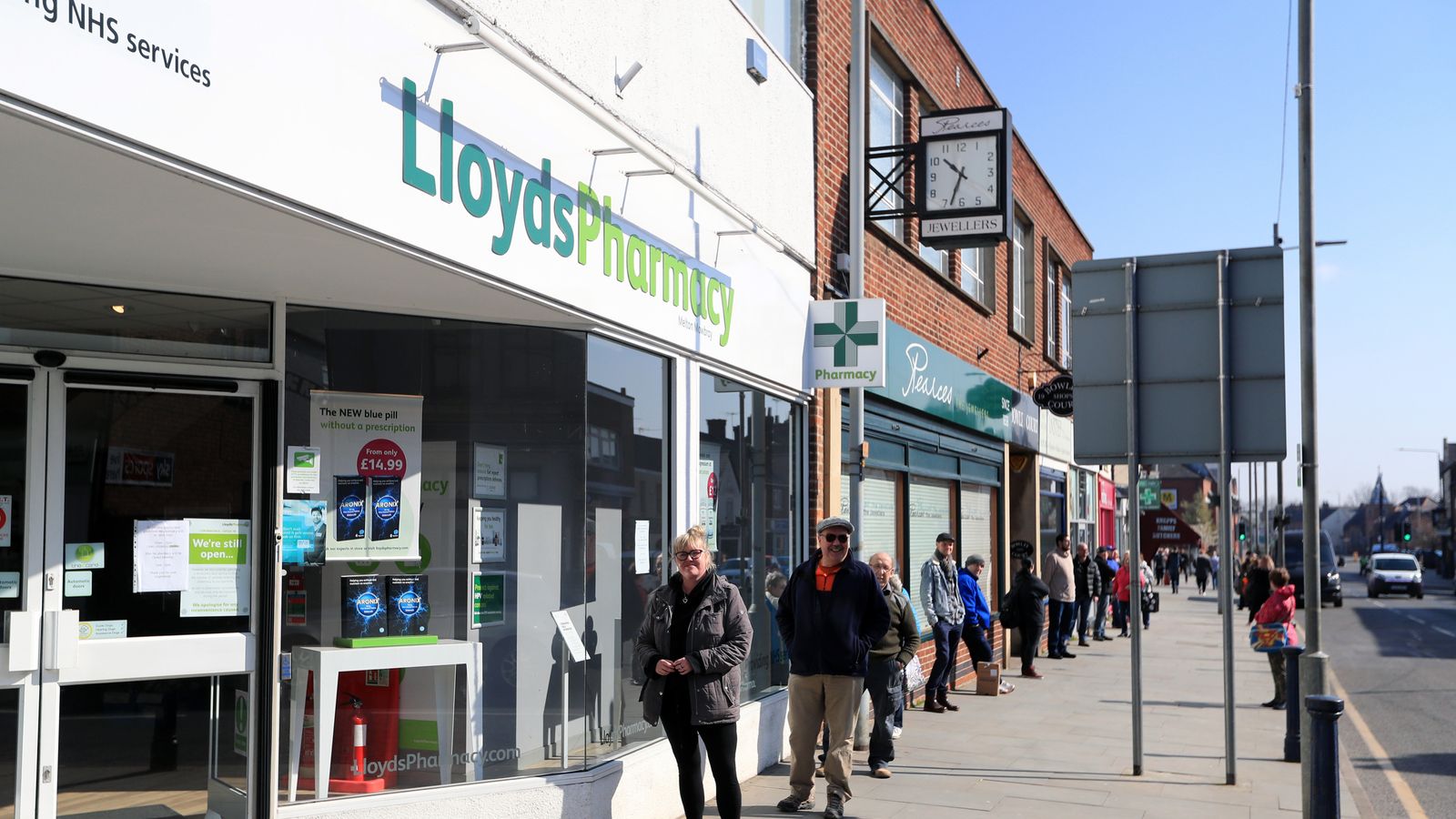Lloyds Pharmacy is to pull out of 237 in-store Sainsbury’s branches, potentially putting more than 2,000 jobs at risk and exposing the financial pressure on UK pharmacies at the height of the NHS crisis.
Lloyds Pharmacy, which bought Sainsbury’s 280-strong pharmacy network in 2015 in a deal worth £125m, said it would close the branches in the course of the year “in response to changing market conditions”.
Individual branches will be put up for sale and the company said it was “working with colleagues potentially affected by the changes and has underlined its commitment to support them through the process”. It did not say how many roles could be affected.
When its parent company Celesio bought the Sainsbury’s pharmacy network, around 2,500 staff transferred to its employment.
Kevin Birch, chief executive of Lloyds Pharmacy, said: “This decision has not been an easy one and we understand that our patients and customers may have questions about how the change will affect them.
“We would like to thank them for their continued support and assure them that we are committed to providing a smooth transition over the coming months.”
Lloyds Pharmacy operates about 10% of UK pharmacies but a number of its branches have been sold in recent months.
Its supermarket sites may be attractive to potential buyers and Boots, the UK’s biggest pharmacy with 2,200 stores, is expected to examine sites in areas where it is under-represented. Given its scale, however, any wholesale purchase could face objections from regulators.
The Lloyds Pharmacy sale underlines the financial squeeze being felt by pharmacists even as ministers call on its resources to relieve pressure on NHS services.
The Department of Health wants pharmacists to expand their services to take some of the pressure off healthcare settings. During the pandemic, pharmacists were a crucial element of the vaccination programme.
The industry has argued that the latest pharmacy contract represents a real-terms cut in income because of the impact of inflation.
Figures published this month showed the industry had lost £1.6bn as a consequence of inflation since 2016, a trend the industry says threatens the future of thousands of community pharmacies.
The Pharmacists Defence Association said the Sainsbury’s closures could adversely affect patients.
“We have seen many disposals of Lloyds Pharmacy branches over recent months and we know more may occur, however for every disposal there has been a buyer, therefore patients and communities have seen no reduction in availability, the pharmacy network has not lost capacity and there were no job losses,” Mark Pitt, its assistant general secretary, said.
“This situation is different and means significant reductions in access to a pharmacy for patients and we expect those who represent communities to be concerned about the loss of a key part of their local NHS service.
“Forward-thinking governments around the UK are seeking to make greater use of pharmacies as the most accessible contact point in the NHS, to reduce pressure on other parts of the healthcare system, so there should be greater community pharmacy capacity, not less.”

